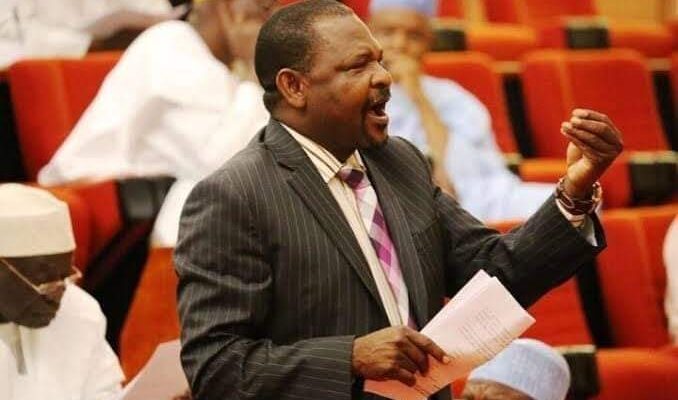The Senate has suspended Senator Abdul Ningi from Bauchi for three months, following a serious dispute over claims he made about “budget padding.” Ningi alleged that there were irregularities in the 2024 national budget, particularly concerning the allocation of funds for constituency projects. However, the Senate felt his accusations were baseless and damaging, leading to his suspension.
The controversy started when Ningi accused the government of inflating the budget and said that there were discrepancies in how money was distributed to different senators for their constituency projects. He claimed that while some districts received massive amounts—up to N120 billion—his own district only got N2 billion. Ningi argued that the budget was poorly allocated, with funds mysteriously “hanging” or unaccounted for, amounting to trillions of naira.
Ningi’s comments caused a stir, and during a Senate session, Senator Jarigbe Agom Jarigbe of Cross River North supported Ningi’s view on the uneven distribution of funds. According to Jarigbe, ranking senators received N500 million each for their constituency projects, while non-ranking senators received just N75 million. Jarigbe expressed frustration, saying that he personally did not receive any funding for his district at all. While Jarigbe clarified that he was not supporting Ningi’s accusation of “budget padding,” he did agree that there were issues with the fairness of fund distribution.
Despite this support, the majority of senators did not side with Ningi. Senate members, including Solomon Adeola, the chairman of the Appropriation Committee, pushed back strongly. They argued that Ningi’s claims were unfounded and accused him of spreading false information. Adeola insisted that there were no “hanging” funds in the budget, and that such allegations could harm the integrity of the Senate. He emphasized that certain budget items, such as allocations to the National Assembly and the Independent National Electoral Commission (INEC), were not detailed in the budget but were not unusual.
Several senators criticized Ningi for making such allegations without proof, arguing that it was damaging to the Senate’s reputation. Some, like Senators Sani Musa, Sadiq Umar, and Abba Moro, argued that Ningi had breached the Senate’s rules and that he should be sanctioned for tarnishing the Senate’s image. Others, like Senate Whip Ali Ndume, called for leniency, suggesting that Ningi should be allowed to apologize and the matter put to rest.
However, Senate Leader Opeyemi Bamidele disagreed with the leniency approach. He strongly advocated for sanctions, stating that Ningi’s accusations were deliberate and harmful to the Senate’s leadership, especially targeting Senate President Godswill Akpabio. Bamidele accused Ningi of trying to destabilize the Senate by undermining the leadership, which could have broader political implications. He also argued that if the Senate did not take firm action, it would encourage more senators to make unverified and damaging claims.
In the end, after extensive debate and a motion by Senator Jimoh Ibrahim, the Senate voted to suspend Senator Ningi for three months. Another senator, Summaila Kawu, who had amplified Ningi’s claims in the Northern Senators’ Forum, was also cautioned and advised to refrain from spreading falsehoods. The suspension means that Ningi will not be allowed to attend Senate sessions or access the National Assembly premises for three months. However, there is an option for early reinstatement if Ningi writes a formal apology.
Following the announcement of his suspension, Ningi packed his documents and left the chamber. Senate President Akpabio explained that the suspension would stand unless Ningi chose to show remorse and apologize in writing. This decision came after multiple amendments to the original motion for a 12-month suspension.
The Senate’s response to the allegations and the suspension of Ningi was clear. The Senate spokesman, Senator Yemi Adaramodu, denied the claims that each senator had been allocated N500 million for constituency projects. He stated that no such allocation had been made and that he was not aware of any senator receiving that amount. Adaramodu’s comments sought to clear up any confusion that might have been caused by the rumors spread following Ningi’s accusations.
This event has brought to light serious concerns about how funds are allocated to lawmakers for their constituency projects and the lack of transparency in the budgeting process. The tension also highlights the divisions within the Senate and the ongoing political rivalries that sometimes lead to accusations of corruption and unfair practices.

